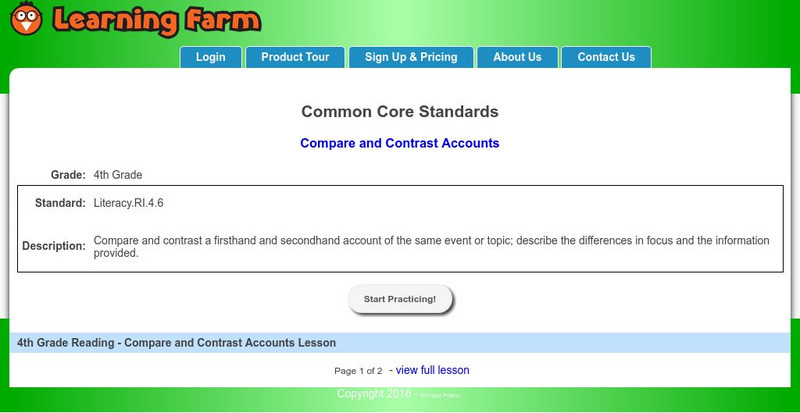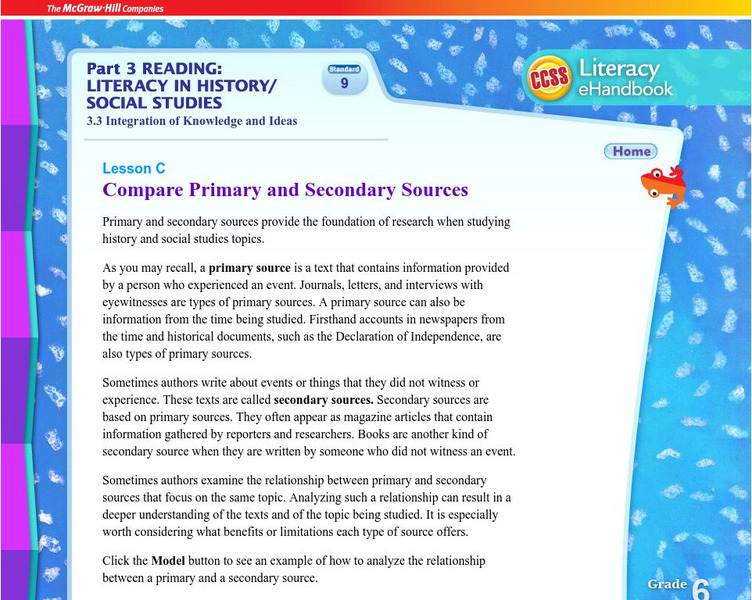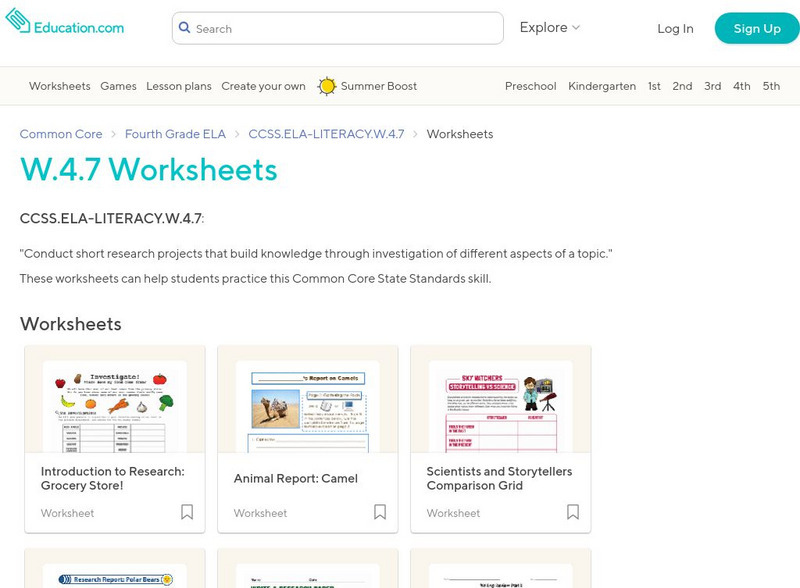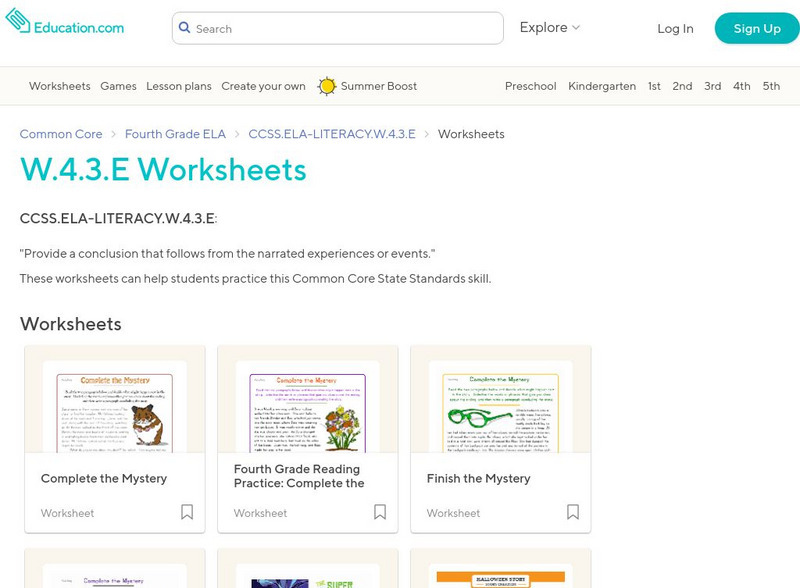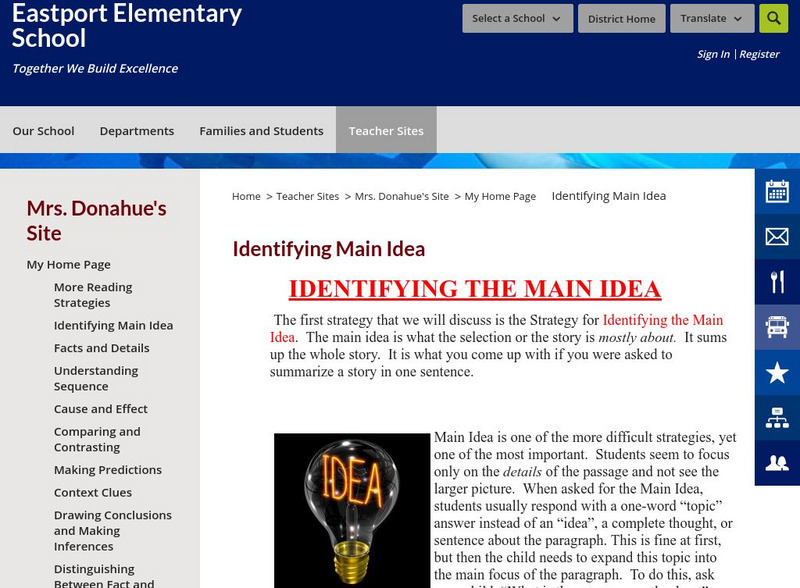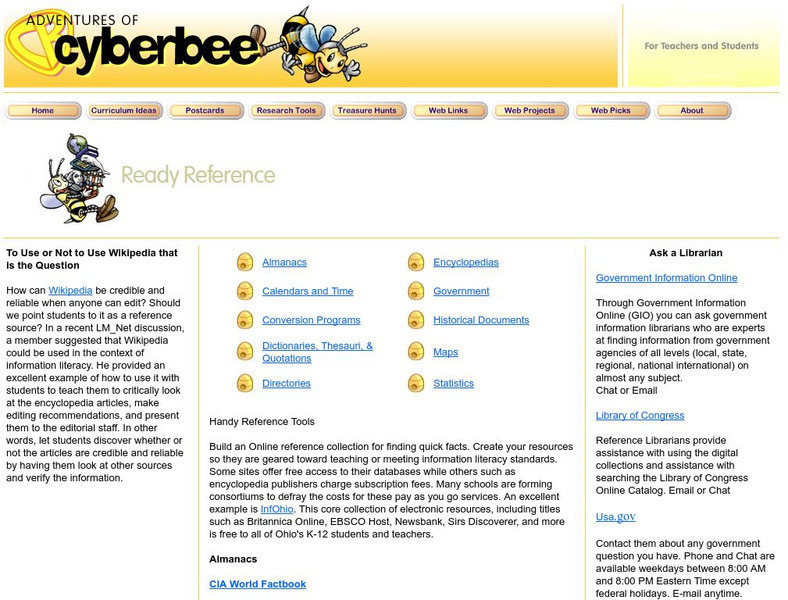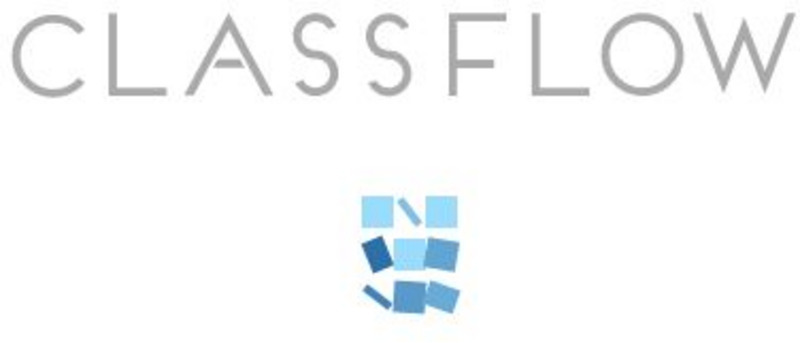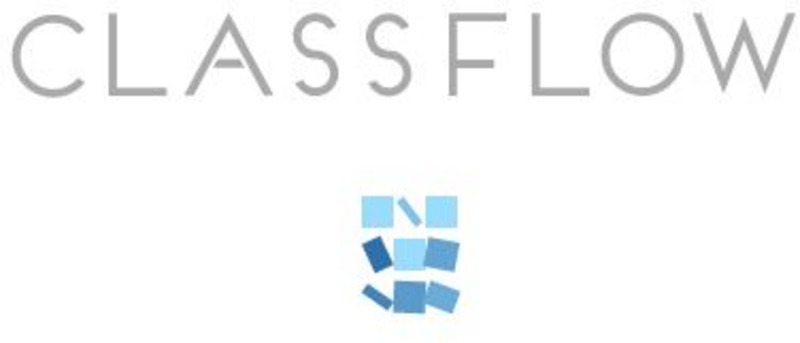Other
Learning Farm: Compare and Contrast Accounts
Students will practice comparing and contrasting a firsthand and secondhand account of the same event or topic.
Curated OER
Mc Graw Hill: Compare Primary and Secondary Sources
Learn how to analyze and compare the relationship between a primary and a secondary source.
Better Lesson
Better Lesson: W.4.2b: Develop the Topic With Facts
Links to 40 lessons and activities that build student skills in standard W.4.2b: Develop the topic with facts, definitions, concrete details, quotations, or other information and examples related to the topic.
Education.com
Education.com: W.4.2.b Worksheets: Develop the Topic With Facts
[Free Registration/Login Required] A site with links to 11 worksheets that can be downloaded and printed for student use while building skills with standard W.4.2.B: Develop the topic with facts, definitions, concrete details,...
Education.com
Education.com: W.4.9.b Worksheets: Apply Grade 4 Reading Standards to Info Texts
[Free Registration/Login Required] A site with links to 4 worksheets that can be downloaded and printed for student use while building skills with standard W.4.9.B: Apply grade 4 reading standards to information texts (e.g., Explain how...
Education.com
Education.com: W.4.7 Worksheets: Conduct Short Research Projects
[Free Registration/Login Required] A site with links to 6 worksheets that can be downloaded and printed for student use while building skills with standard W.4.7: Conduct short research projects that build knowledge through investigation...
Education.com
Education.com: W.4.3.e Worksheets: Provide a Conclusion for a Narrative
[Free Registration/Login Required] A site with links to 7 worksheets that can be downloaded and printed for student use while building skills with standard W.4.3.E: Provide a conclusion that follows from the narrated experiences or events.
Other
How to Compile a Bibliography
This site provides basic guidelines and examples for how to compile a bibliography. Grade levels listed 1st through 6th.
Other
Eastport Elementary School: Mrs. Donahue's Site: Identifying the Main Idea
Information, examples, and practice passages to use while learning how to identify the main idea of an informational text.
Alabama Learning Exchange
Alex: Creating State Brochures
Students will work in pairs to research online and/or in print a chosen state and create a travel brochure incorporating the information gathered.
Alabama Learning Exchange
Alex: Information Location Mini Lesson
This lesson introduces using the print encyclopedia for grades 3-5. Students are assigned a topic which is selected from their social studies curriculum. Small groups are sent to the reference shelf to select the correct encyclopedia...
PBS
Pbs Learning Media: Main Idea and Details Cloud
Learners practice distinguishing between relevant and irrelevant ideas by identifying relevant details in a video segment about a wild horse roundup. Students watch the video, read the transcript, and identify details they believe are...
South Carolina Educational Television
Know It All: Primary and Secondary Sources
Fourth graders will be learning about the difference between a primary and secondary source.
Florida Center for Reading Research
Florida Center for Reading Research: Expository Text Structure: Research Roundup
A lesson plan in which students complete graphic organizers as they gather research information. Materials are included.
University of California
Cal Heritage Collection: Using Primary Sources
This resource covers what primary sources are, where we can find them, and how we can assess them in the classroom.
McREL International
Mid Continent Research for Education and Learning: Deconstructing Media Messages
This brief lesson focuses on the roles that many different people play in the creation of media messages and advertising.
Cyberbee
Cyber Bee: Ready Reference
This site is a tool to help students hone their reference skills.
TES Global
Blendspace: Online Reference Sources
A twelve-part learning module with links to videos and websites about online reference sources.
ClassFlow
Class Flow: Questions and Statements
[Free Registration/Login Required] Students will identify questions and statements (without the punctuation cue). They will also practice changing a question into a statement.
ClassFlow
Class Flow: Reading to Gather Information
[Free Registration/Login Required] This is an introduction for elementary students learning to pull facts from sources.
ClassFlow
Class Flow: Reference Sources
[Free Registration/Login Required] This flipchart reviews different reference sources including, encyclopedias, dictionaries, thesauruses, almanacs, atlases, and periodicals.
ClassFlow
Class Flow: Research Resources
[Free Registration/Login Required] This flipchart poses a series of questions to students asking them to select the appropriate resource source given the information in the questions.
ClassFlow
Class Flow: Title Page Reveal: Finding Bibliographic Information
[Free Registration/Login Required] Practice locating the title, author and publication information of a book using real title and CIP pages, and a reveal tool.
ClassFlow
Class Flow: Features of a Newspaper
[Free Registration/Login Required] A flipchart that examines the way in which newspapers and articles are constructed. The end of the flipchart focuses specifically on the battle of Glencoe, but the majority of the flipchart has much...


